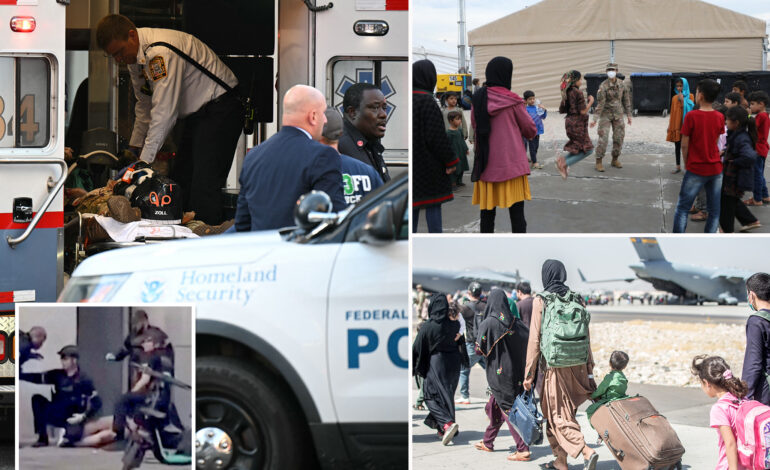Afghan Resettlement Program Faces Scrutiny after DC Shooting

Rahmanullah Lakanwal, an Afghan national, is suspected of shooting two members of the National Guard during a terror attack in Washington, DC, on March 13, 2024. Lakanwal was permitted entry into the United States under the Biden administration’s resettlement programs, which have come under intense scrutiny from Republican lawmakers who have long warned about the potential security risks associated with these initiatives.
Lakanwal, 29, entered the country in September 2021 under Operation Allies Welcome (OAW) amid the chaotic withdrawal of U.S. forces from Afghanistan. He subsequently resettled in Bellingham, Washington. Approximately 90,000 Afghans gained entry to the U.S. through the Biden administration’s efforts, with around 73,500 receiving a two-year parole that allowed them to live and work legally in the country. The remaining evacuees were admitted under Special Immigrant Visas or other immigration statuses.
Concerns about the vetting process for Afghan refugees surfaced soon after the programs were initiated. In an October 2021 letter to then-Defense Secretary Lloyd Austin and former Homeland Security Secretary Alejandro Mayorkas, Sen. Joni Ernst (R-Iowa) expressed her worries regarding the clarity and completeness of the security measures in place. She described the vetting process as “hastily developed,” underscoring the risks of potentially allowing a terrorist into the United States.
President Donald Trump characterized Lakanwal’s actions as an “act of terror,” highlighting that he is not the first Afghan evacuee linked to terrorism since the withdrawal. In October 2024, the Justice Department charged another Afghan national, Nasir Ahmad Tawhedi, with plotting a terror attack inspired by ISIS. Tawhedi, who entered the U.S. on September 9, 2021, allegedly attempted to stockpile weapons for an attack on American soil.
The situation has further fueled criticism from Republican lawmakers. Sen. Chuck Grassley (R-Iowa) reiterated his concerns about the vetting process, stating that he had been sounding the alarm since August 2021 about the need for thorough background checks on Afghan evacuees. He criticized the Biden administration for allegedly allowing suspected terrorists to enter the U.S. and remain undetected for years. In July, Grassley cited information from the Director of National Intelligence indicating that around 1,600 Afghan evacuees had links to terrorism or other derogatory information as of August 2022.
A report from the Department of Justice Inspector General (DOJ IG) released in June revealed that at least 55 Afghan evacuees were on a terror watch list during the evacuation process. Of these, 46 were later removed from the list after being cleared of any threat, while nine remained in the database as of July 2024, with eight still residing in the U.S. It has not yet been confirmed whether Lakanwal was included in any such lists.
The DOJ IG report indicated that the typical processes required to assess threats to national security and public safety were compromised during the expedited evacuation efforts from Afghanistan. The Department of Homeland Security (DHS) described its screening process as a “multi-layered review” conducted by professionals in intelligence, law enforcement, and counterterrorism, who analyzed biometric and biographic data to identify potential threats.
Under the Trump administration, DHS had been addressing requests from Afghan nationals for parole extensions on a case-by-case basis. In contrast, the Temporary Protected Status (TPS) for Afghan migrants was terminated in July 2021.
Following the shooting incident in Washington, DC, U.S. Citizenship and Immigration Services announced a halt to all immigration requests from Afghan nationals pending a review of vetting protocols. The agency emphasized its commitment to prioritizing the protection and safety of the American public.
In response to the attack, President Trump stated that his administration would thoroughly review the status of every Afghan national who entered the U.S. under the Biden administration, pledging to take all necessary measures to remove individuals deemed unfit for residence in the country. He asserted that the incident underscores a significant national security challenge, attributing the situation to the previous administration’s policies that allowed potentially dangerous individuals to enter the United States.
The evolving situation and the implications of the Afghan resettlement programs continue to raise critical questions regarding national security and the effectiveness of the screening processes in place.






